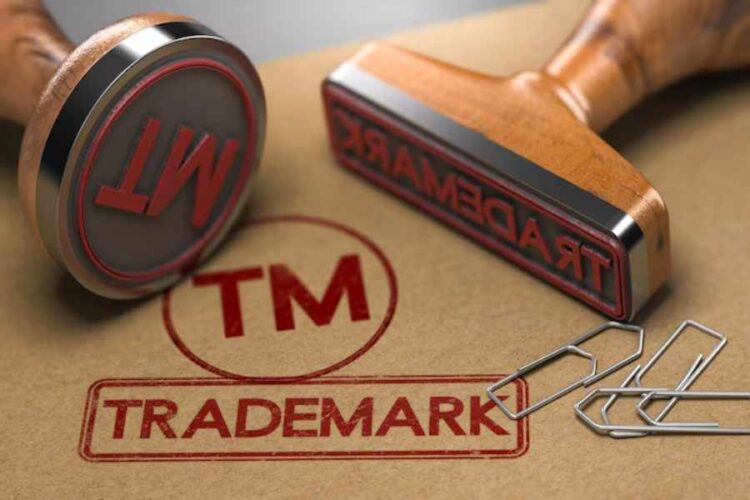When starting a business, one of the most crucial legal decisions involves protecting your brand. That’s where trademark law steps in. But a common question many entrepreneurs, legal students, and even established professionals ask is: Is trademark law state or federal? The answer isn’t entirely black and white. In the United States, trademark law is governed by a combination of federal statutes, particularly the Lanham Act, and individual state laws.
This dual-layered approach means a business can register a trademark either with the United States Patent and Trademark Office (USPTO) for national protection or with state authorities for localized security. However, the implications of choosing one over the other can have lasting effects on your brand’s reach, legal strength, and enforceability.
In this detailed guide, we’ll explore “Is trademark law state or federal?” from every angle: how it works, when each applies, why both levels exist, and how to protect your business effectively. You’ll also learn why understanding the distinction is vital for entrepreneurs, digital creators, and companies seeking a competitive edge.
Whether you’re launching a small bakery or rolling out a new tech brand, knowing whether your trademark law state or federal can make or break your intellectual property strategy. Let’s break it down.
Is Trademark Law State or Federal?
Trademark law in the U.S. is both federal and state-based. The federal system, governed by the Lanham Act, offers nationwide protection and is managed by the USPTO. State trademark laws provide local protection within a particular state. While federal trademarks offer broader rights, state registrations may suffice for localized businesses.
How U.S. Trademark Law Works – Federal vs. State
To fully answer the question, “Is trademark law state or federal?”, it’s important to understand that the United States legal system provides trademark protection at both levels. This dual system allows businesses to choose between registering their trademark with the federal government or with individual states, depending on their needs.
Federal trademark law is regulated by the Lanham Act, which empowers the USPTO (United States Patent and Trademark Office) to grant trademarks that protect your brand across the entire country. With federal registration, businesses enjoy stronger legal backing, broader enforcement rights, and nationwide recognition.
Meanwhile, state-level trademark registration is managed through each state’s Secretary of State. It offers protection only within that specific state, which can be beneficial for small, local businesses. It’s also generally less expensive and quicker to obtain than federal registration. When ownership changes or rights are transferred, a proper trademark assignment ensures the transfer is legally recognized, whether at the state or federal level.
However, federal registration carries more weight in legal disputes, especially when operating in multiple states or online. Businesses with regional or national ambitions are strongly encouraged to pursue federal protection.
So, is trademark law state or federal? It’s both—and knowing when and how to use each level of protection is vital to securing your brand identity and staying legally protected in today’s competitive marketplace.
When Should You Choose State vs. Federal Trademark Protection?
Deciding between state and federal trademark registration depends on your business model, future goals, and budget. Understanding the nuances between these two options helps ensure that your brand is protected appropriately.
Coverage Scope: State vs. Nationwide
The most significant difference between state and federal trademark protection is the geographic coverage. A state trademark registration only safeguards your brand within the boundaries of that particular state. This limited scope can work well for local businesses with no plans to expand beyond state lines. In contrast, a federally registered trademark grants nationwide protection across all 50 states and U.S. territories. This makes it a preferred choice for businesses planning to grow, operate online, or franchise across state borders.
When State Registration Makes Sense
If you’re running a small, local business—like a neighborhood café, boutique, or service provider—a state trademark may be the right option. It’s easier, quicker, and more affordable to obtain. For businesses that don’t intend to move beyond state borders, the localized protection of a state trademark can be entirely sufficient.
Why Federal Registration is More Popular
Many companies choose to register at the federal level early on. Federal registration offers broader legal protections, including the presumption of ownership nationwide and the ability to bring lawsuits in federal court. It also strengthens your position in trademark disputes.
Cost and Processing Time
State trademarks are relatively inexpensive, usually costing between $50 and $150. Federal trademarks, however, cost about $250 to $350 per class, not including legal fees. Approval timelines also vary—state trademarks can be processed within weeks, while federal applications may take up to a year.
Top Benefits of Registering a Federal Trademark in the U.S.
Is trademark law state or federal? This question becomes especially relevant when businesses evaluate the level of protection they need. While state-level trademarks offer localized benefits, federal trademark registration provides a comprehensive set of advantages that can significantly strengthen a brand’s legal position and commercial value.
Here are the primary benefits of registering a trademark at the federal level:
- Nationwide Protection: A federal trademark registration offers automatic protection in all 50 states and U.S. territories. This is crucial for businesses operating across multiple states or conducting e-commerce nationwide.
- Right to Use the ® Symbol: Only federally registered trademarks are legally allowed to use the ® symbol. This symbol communicates official status and can deter potential infringers.
- Stronger Legal Enforcement: With federal registration, you can file infringement lawsuits in federal court, which often provides more favorable remedies and damage awards than state-level litigation.
- Support from U.S. Customs: Federal trademarks can be recorded with U.S. Customs and Border Protection, which helps block the importation of counterfeit or infringing goods into the country.
- Inclusion in the Federal Database: Once registered, your trademark is publicly searchable in the USPTO database. This deters others from unknowingly or intentionally registering similar marks.
- Foundation for Global Protection: A federally registered trademark can be used as the basis for filing in other countries through international treaties like the Madrid Protocol, expanding your brand’s reach globally.
What Happens If You Don’t Register Your Trademark?
Choosing not to register your trademark—whether at the state or federal level—can leave your brand vulnerable to serious legal and commercial risks. Although the U.S. recognizes “common law” trademark rights based on actual usage in commerce, these rights are significantly weaker and geographically limited. Without formal registration, proving ownership becomes difficult, and enforcing your rights outside of your immediate area is nearly impossible.
Common law trademarks offer no nationwide protection and provide little leverage in legal disputes. They also don’t allow you to use the ® symbol, register with U.S. Customs, or apply for international protection under the Madrid Protocol. If someone else registers your mark federally, even if you’ve been using it longer locally, they may legally force you to stop using the name or even rebrand entirely.
So, is trademark law state or federal? Understanding this distinction is essential. Skipping registration may save a few dollars now, but it exposes your business to long-term legal complications and the risk of losing your brand identity.
Why Is Trademark Law Both State and Federal?
Many people wonder, “Why is trademark law both state and federal?” The answer lies in the unique structure of the U.S. legal system and the practical needs of businesses operating at different scales. Here’s how this dual system evolved and why it continues to exist:
- Historical Evolution of U.S. Trademark Law: In the early days of American commerce, trademark protection was based solely on common law principles. Businesses gained rights to a name or logo simply by using it in the marketplace. However, as commerce expanded across state borders, these protections proved insufficient, prompting a need for a more comprehensive legal framework.
- The Introduction of the Lanham Act: Passed in 1946, the Lanham Act became the cornerstone of federal trademark law. It standardised protections across all states, established procedures for national registration through the USPTO, and created consistent legal remedies for infringement on a national level.
- The Ongoing Role of State Trademark Laws: Even with federal oversight, states retained the ability to regulate trademarks that apply only within their borders. State registration is especially useful for small, local businesses that operate solely in one region and seek faster, low-cost protection.
- The Practical Benefit of a Dual System: Federal trademark law serves broader national and international interests, while state trademark laws offer flexibility and localized control. Together, they provide layered protection tailored to businesses of all sizes and ambitions.
Conclusion
In the U.S., trademark law is both state and federal, providing layered protection depending on your business size, strategy, and goals. Federal registration under the Lanham Act offers stronger, more enforceable rights across the nation. State registration, while limited in scope, provides a quicker and cheaper solution for locally focused businesses.
Understanding is trademark law, state or federal? It’s not just a legal nuance — it’s a strategic choice that affects your entire branding and legal risk framework. Choose wisely to secure your business identity now and into the future.
FAQ’s
Is trademark law state or federal in the U.S.?
Trademark law exists at both the state and federal levels. While state laws protect marks locally, federal law provides nationwide protection and stronger enforcement tools.
Can I register a trademark in both state and federal systems?
Yes, you can register your trademark in both systems to maximize legal protection. This is common for businesses that start locally but plan to grow regionally or nationally.
Is it necessary to register a trademark federally?
Federal registration isn’t legally required, but it significantly strengthens your rights. It gives you national protection, access to federal courts, and the ability to deter infringement more effectively.
How long does a federal trademark last?
A federal trademark lasts for 10 years, but to maintain it, you must file specific documents between the 5th and 6th years and then renew every 10 years afterwards.
What happens if someone uses my trademark without registering it?
You still hold “common law” rights based on usage, but these are limited to your local area and offer weaker protection, especially in disputes beyond your state.









